Important Information On Using This Service
- Ergsy carefully checks the information in the videos we provide here.
- Videos shown by YouTube after a video has completed have NOT been reviewed by ERGSY.
- To view, click the arrow in the center of the video.
Using Subtitles and Closed Captions
- Most of the videos you find here will have subtitles and/or closed captions available.
- You may need to turn these on and choose your preferred language.
Turn Captions On or Off
- Go to the video you'd like to watch.
- If closed captions (CC) are available, settings will be visible on the bottom right of the video player.
- To turn on captions, click settings.
- To turn off captions, click settings again.
Find A Professional
More Items From Ergsy search
-
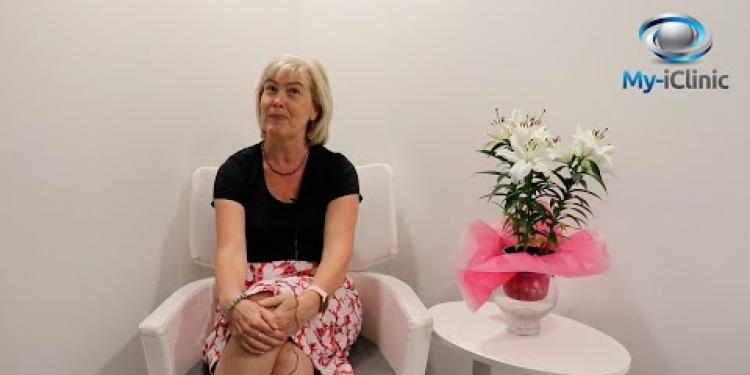
Cataract surgery can resolve life long short-sightedness?!
Relevance: 100%
-
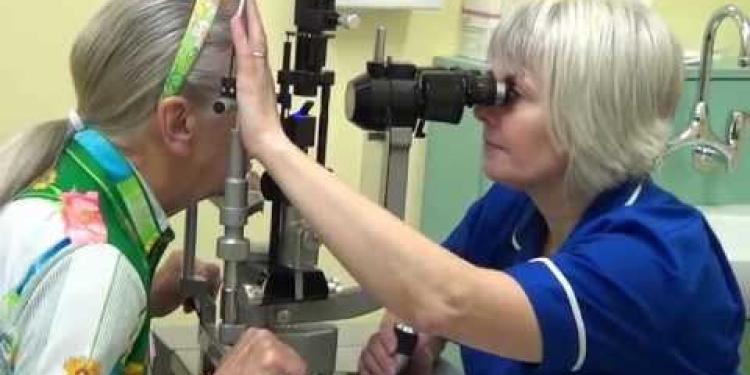
Your Cataract Operation
Relevance: 92%
-
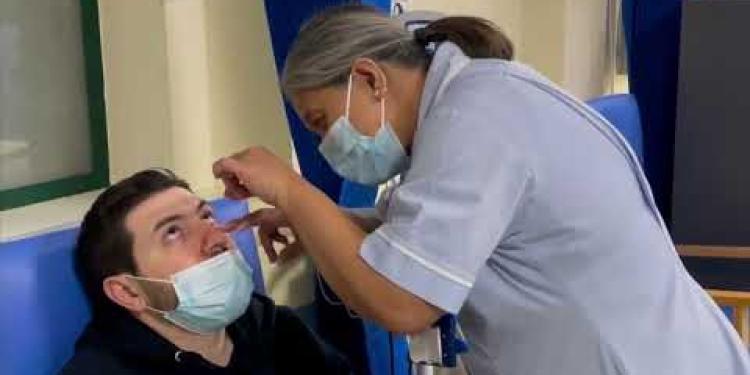
On the day of your cataract surgery
Relevance: 32%
-
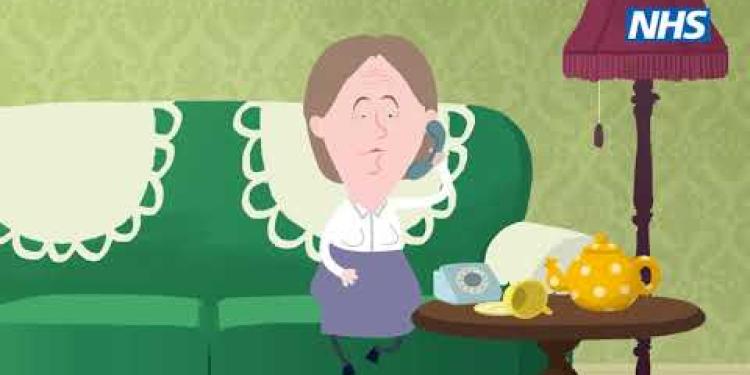
West Midlands LEHN Animated Video on Eye Health
Relevance: 8%
-

What is Retinal Detachment (Detached Retina)? Causes, Symptoms, and Treatment Options
Relevance: 4%
-
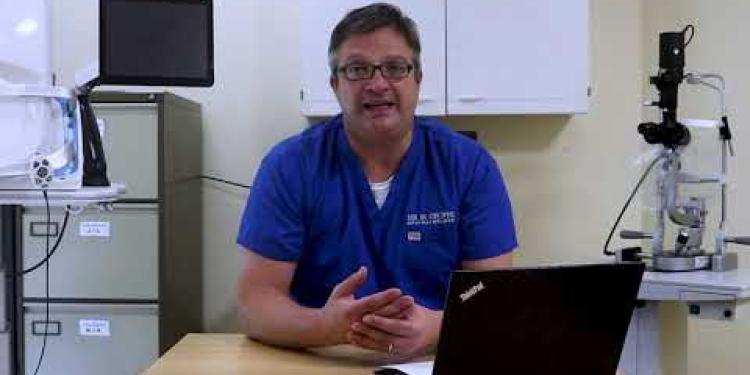
Charles Bonnet Syndrome
Relevance: 4%
-

What is Short-Sightedness?
Relevance: 2%
Cataract Surgery Can Resolve Lifelong Short-Sightedness?!
Understanding Cataract Surgery
Cataract surgery is a medical procedure primarily used to treat cataracts, a condition characterized by the clouding of the eye's natural lens. During the surgery, the cloudy lens is removed and typically replaced with a clear, artificial intraocular lens (IOL). While its primary goal is to restore clear vision lost due to cataracts, this surgery can also address certain refractive errors, including short-sightedness.How Cataract Surgery Can Address Short-Sightedness
Short-sightedness, or myopia, is a common refractive error where distant objects appear blurry while close objects are seen clearly. In the UK, it affects many people, often requiring them to wear glasses or contact lenses. During cataract surgery, the placement of a specially designed IOL can correct myopia. These advanced lenses can be tailored to the individual's prescription, effectively reducing or eliminating the need for corrective eyewear post-surgery.Benefits Beyond Improved Vision
Correcting short-sightedness via cataract surgery can significantly enhance an individual’s quality of life. Post-surgery, many patients experience improved distance vision, reducing the dependency on glasses for everyday activities. Furthermore, better vision can lower the risk of accidents and falls, contributing to overall health and safety.Considerations and Expectations
It's crucial for patients in the UK considering cataract surgery to have realistic expectations and discuss their visual needs with an ophthalmologist. Not all IOLs are suitable for everyone, and factors such as age, the severity of myopia, and other eye conditions must be considered. NHS or private options are available for cataract surgery, and the choice of IOLs can vary significantly in terms of cost.Conclusion
Cataract surgery offers a potent solution for not only treating cataracts but also addressing lifelong short-sightedness. With the right intraocular lens, patients can attain improved distance vision, enhancing their quality of life and independence. If you are considering this surgery in the UK, consult with a healthcare professional to explore the most suitable options for your unique visual needs.Can Cataract Surgery Fix Short-Sightedness?
What is Cataract Surgery?
Cataract surgery is a special medical operation. It removes a cloudy lens in the eye. This cloudy lens is called a cataract. Doctors take out the cloudy lens and put in a new clear one. The new lens helps people see better. This surgery can also help fix some eye problems like short-sightedness.Can Cataract Surgery Help with Short-Sightedness?
Short-sightedness is when far away things look blurry, but close-up things are clear. Many people in the UK have this problem. They might need glasses or contact lenses to see far away. During cataract surgery, doctors can put in a special lens. This lens can help fix short-sightedness, so you might not need glasses as much afterwards.More Good Things After Surgery
Fixing short-sightedness with cataract surgery can make life better. People can see far away better without glasses. This makes doing everyday things easier. Seeing better can also help stop accidents and falls, making life safer.Things to Think About
If you think about having cataract surgery in the UK, talk to your eye doctor. It’s important to know what to expect. Not all lenses are right for everyone. Your age, how bad your short-sightedness is, and other eye health issues matter. There are NHS and private options for surgery. Different lenses can cost different amounts.In Summary
Cataract surgery can help fix cataracts and short-sightedness. With the right lens, you can see far away better. This makes life easier and more fun. If you want to know more, talk to a healthcare professional to see what’s best for your eyes.Frequently Asked Questions
Can cataract surgery correct lifelong short-sightedness?
Yes, cataract surgery can often correct lifelong short-sightedness by replacing the cloudy lens with an intraocular lens (IOL) that corrects the refractive error.
Is cataract surgery available on the NHS in the UK?
Yes, cataract surgery is available on the NHS, although eligibility and waiting times may vary depending on individual circumstances and local NHS resources.
What types of intraocular lenses (IOLs) are used in cataract surgery?
There are several types of IOLs, including monofocal, multifocal, and toric lenses, each designed to address different vision issues such as short-sightedness, long-sightedness, and astigmatism.
How long does it take to recover from cataract surgery?
Recovery from cataract surgery typically takes a few weeks, but most patients can resume normal activities within a few days.
Are there any risks associated with cataract surgery?
As with any surgery, cataract surgery carries some risks, including infection, inflammation, and, in rare cases, vision loss. However, it is generally considered to be a safe and routine procedure.
Will I need glasses after cataract surgery?
Many patients experience significant improvement in their vision, reducing the need for glasses. However, some may still need glasses for specific tasks like reading or driving.
What is the success rate for cataract surgeries?
Cataract surgeries have a high success rate, with over 90% of patients experiencing improved vision as a result of the procedure.
Can cataract surgery be performed on both eyes at the same time?
Typically, cataract surgery is performed on one eye at a time, with a few weeks between surgeries to allow the first eye to heal properly.
Is cataract surgery painful?
Most patients experience little to no pain during cataract surgery, as the procedure is usually performed under local anesthesia with sedation.
What should I expect during the cataract surgery procedure?
During cataract surgery, the clouded lens is removed and replaced with an artificial intraocular lens. The procedure usually takes about 30 minutes.
How do I know if I am a candidate for cataract surgery?
Candidates for cataract surgery are typically those who have significant vision impairment due to cataracts and whose quality of life is affected.
What are the signs that I might need cataract surgery?
Signs include blurred vision, difficulty seeing at night, sensitivity to light, seeing halos around lights, and frequent changes in prescription glasses.
How can I prepare for cataract surgery?
Your eye doctor will provide specific instructions, which may include fasting, avoiding certain medications, and arranging transportation for the day of the surgery.
Can cataract surgery correct other vision problems like astigmatism?
Yes, special types of IOLs, such as toric lenses, can correct astigmatism along with other vision issues during cataract surgery.
How soon after cataract surgery can I resume normal activities?
Many patients can return to normal activities within a few days, but it is important to follow your doctor's advice regarding specific activities such as driving, bending, or lifting.
Can cataract surgery fix being short-sighted for life?
Cataracts happen when the lens in the eye gets cloudy. A doctor can do surgery to take out the cloudy lens and put in a clear lens. This might help improve eyesight.
If you have been short-sighted your whole life, the new lens can also help with this. Short-sighted means you can see things close to you, but far away things are blurry.
Before surgery, the doctor picks a lens that can help you see better far away. After surgery, many people notice they can see well, both near and far.
If you are worried or have questions, ask your eye doctor. They can explain and help you understand.
Cataract surgery can help fix short-sightedness. The doctor takes out the cloudy lens in your eye. They put in a new clear lens instead. This new lens helps you see better.
Can you get cataract surgery for free with the NHS in the UK?
Yes, you can get cataract surgery with the NHS. But, how long you wait and if you can get it might be different for each person and where they live.
What kinds of eye lenses are used in cataract surgery?
When someone has cloudy vision because of cataracts, doctors can do a surgery to help them see better. During this surgery, the doctor puts a special lens inside the eye. This lens is called an intraocular lens or IOL for short.
There are different types of these eye lenses:
- Monofocal lens: This lens helps you see clearly at one distance, either near or far.
- Multifocal lens: This lens helps you see at different distances, so you can see both near and far.
- Toric lens: This lens helps if you have astigmatism, which means your eye is not perfectly round.
- Accommodative lens: This lens moves inside your eye and helps you see at different distances, similar to how a natural eye lens works.
Using pictures and videos can help understand these lenses better. Speaking with a doctor or a nurse can also be very helpful in making the best choice for you.
There are different kinds of IOLs. IOLs are special lenses for your eyes. Some kinds are monofocal, multifocal, and toric lenses. Each kind can help with different vision problems. They can help if you are short-sighted, long-sighted, or have astigmatism.
If you need more help with reading, you can use tools like audiobooks or text-to-speech apps. These can read out text to you. Using pictures to help explain words can also be useful. You can ask a teacher or a family member to help too.
How long does it take to get better after cataract surgery?
When you have cataract surgery, doctors fix your eye so you can see better.
It usually takes about 1 to 3 months to feel all better after the surgery.
Here are some tips to help:
- Ask someone to help you if you need it.
- Rest your eyes often and don't use screens too much.
- Wear sunglasses if it's sunny outside.
- Go to all your doctor check-ups after the surgery.
After having cataract surgery, it usually takes a few weeks to get better. But most people can start doing their normal activities after a few days.
Are there any risks with cataract surgery?
Cataract surgery is usually safe. But, like all surgeries, there can be some risks. Here are some things you might want to know:
- People might get an infection or swelling after the surgery.
- Some people might have blurry vision.
- There might be other problems, but they are rare.
If you are worried, talk to your doctor or someone you trust. They can help you understand more.
It might help to use big print books or audio guides to learn more.
Cataract surgery is an operation to help you see better. Like all operations, there are some things that can go wrong. You could get an infection or your eyes might get sore. Very rarely, it could make your vision worse. But most of the time, it is a safe operation and not hard for doctors to do.
Will I need glasses after my eye surgery?
Your doctor takes out the cloudy part of your eye in this surgery.
You might see clearly without glasses afterward. But some people still need glasses for reading or seeing far away.
It's good to talk to your doctor after the surgery to know what you need.
If reading is tricky, you can use tools like a magnifying glass or ask someone to help read with you.
Many people see better after treatment, so they need glasses less. But some people might still need glasses to read or drive.
How often do cataract surgeries work well?
Most people who have cataract surgery can see better afterwards. It helps more than 90% of people.
Can you have cataract surgery on both eyes at once?
Cataract surgery is a way to help you see better. Doctors can fix one eye at a time. But sometimes people ask if they can fix both eyes in one go.
Most doctors like to do one eye first. They do this to make sure everything is okay. After the first eye heals, they can do the second eye.
If you want to know more about this, talk to your doctor. They know what is best for you.
If reading is hard, you can:
- Ask someone to read to you.
- Use an audio tool to listen to the words.
- Ask questions to your doctor if you don’t understand.
Cataract surgery is usually done on one eye at a time. Doctors wait a few weeks before doing the other eye. This time helps the first eye to get better.
Does cataract surgery hurt?
Cataract surgery does not usually hurt. Doctors use special medicine to help you feel comfortable. You might feel a little pressure, but it should not be painful.
It is okay to ask the doctor questions so you feel safe. You can bring someone you trust to be with you.
After surgery, your eye might feel a little sore, but this goes away. If it hurts a lot, tell your doctor. They can help make it better.
Most people do not feel much pain during cataract surgery. Doctors use medicine to make the area numb and help you feel relaxed.
What happens during cataract surgery?
Cataract surgery is a simple eye operation. Here’s what usually happens:
1. You will go to the hospital or clinic. You might be awake, but you won’t feel any pain.
2. The doctor will clean your eye and put in special drops to make it numb.
3. The doctor makes a tiny cut in your eye. They remove your cloudy lens.
4. The doctor puts a clear new lens in your eye.
5. After the surgery, you will rest for a bit. You might wear a patch to protect your eye.
You can ask a friend or family member to come with you. Also, you might need glasses later. Always follow the doctor’s advice. Use audiobooks or podcasts to learn more if reading is hard.
When doctors fix cataracts, they take out the cloudy lens in your eye. They put in a new, clear lens instead. This takes about 30 minutes.
How do I know if I need cataract surgery?
Do you have trouble seeing clearly? It might be hard to read, watch TV, or see things far away. If yes, you might need cataract surgery.
The eye doctor can help. They will check your eyes and tell you if surgery is a good idea.
If you need help understanding what the doctor says, bring a friend or family member with you. You can also ask the doctor to explain things slowly and use simple words.
People who need cataract surgery usually have trouble seeing because of cataracts, and it makes their life harder.
How do I know if I need cataract surgery?
You might need cataract surgery if:
- Your vision is blurry or foggy
- You find it hard to see at night
- Bright lights hurt your eyes
- Colors look faded or yellow
- You need to change your glasses often
- You see double images
Here are some things that can help:
- Ask an eye doctor for advice
- Use brighter lights when reading
- Wear sunglasses to protect your eyes from bright light
Signs to look out for:
- Blurry vision
- Hard to see in the dark
- Sensitive to bright lights
- Halos around lights
- Needing new glasses often
Tips to help:
- Use good lighting.
- Wear sunglasses outside.
- Get your eyes checked regularly.
How can I get ready for cataract surgery?
Cataract surgery means fixing the eye to see better.
Here are some tips to help you:
- Visit your doctor. They will check your eyes and explain the surgery.
- Ask questions if you do not understand. It is okay to ask your doctor anything.
- Someone should come with you on the day of surgery. They can help you get home safely.
- Do not eat or drink anything the night before the surgery. Your doctor will tell you when to stop.
- Write down instructions from the doctor. You can use a notebook or ask someone to help.
Tools or techniques that can help:
- Use a calendar to mark the date of your surgery.
- Set reminders on your phone to take any medicine.
- Use large print for important information.
Your eye doctor will tell you what to do before the surgery. They might say you can't eat, you should not take some medicine, and you need someone to drive you home after the surgery.
Can cataract surgery fix other eye problems like astigmatism?
Cataract surgery helps people see better by taking out the cloudy lens in their eye. It can also help fix other problems, like astigmatism. Astigmatism is when your eye is not perfectly round, which makes things look blurry.
If you have astigmatism, the doctor can put in a special lens during surgery to make your vision clearer. This lens is called a toric lens.
There are other ways the doctor can help your eyes, too. They might use special tools to change the shape of your eye during the surgery.
If you have questions, talk to your eye doctor. They can explain what is best for your eyes.
It can help to use a magnifying glass or read out loud with someone to understand better.
Yes, there are special lenses that can help with astigmatism. These are called toric lenses. They can also fix other eyesight problems when you have cataract surgery.
If reading is hard, try using a ruler or your finger to keep your place. Audiobooks or text-to-speech tools can also help you understand better.
When can I do my normal activities after cataract surgery?
Most people can go back to doing normal things after a few days. Make sure you listen to your doctor about when you can do things like driving, bending, or lifting.
Useful Links
Useful links from: What is Short-Sightedness?
- NHS - Short-Sightedness (Myopia) Comprehensive information from the NHS about short-sightedness, including causes, symptoms, diagnosis, and treatment options.
- RNIB - Eye Conditions: Myopia The Royal National Institute of Blind People (RNIB) provides details on myopia, covering what it is, how it's diagnosed, and living with the condition.
- Fight for Sight - Myopia Fight for Sight offers insights into myopia, including its impact, research initiatives, and resources for those affected by the condition.
- Myopia UK - Understanding Myopia Myopia UK is a charity focused on raising awareness about myopia (short-sightedness), providing resources and supporting research into the condition.
More Videos of Interestdiagnosis
Have you found an error, or do you have a link or some information you would like to share? Please let us know using the form below.
- Ergsy carfully checks the information in the videos we provide here.
- Videos shown by Youtube after a video has completed, have NOT been reviewed by ERGSY.
- To view, click the arrow in centre of video.
- Most of the videos you find here will have subtitles and/or closed captions available.
- You may need to turn these on, and choose your preferred language.
- Go to the video you'd like to watch.
- If closed captions (CC) are available, settings will be visible on the bottom right of the video player.
- To turn on Captions, click settings .
- To turn off Captions, click settings again.

